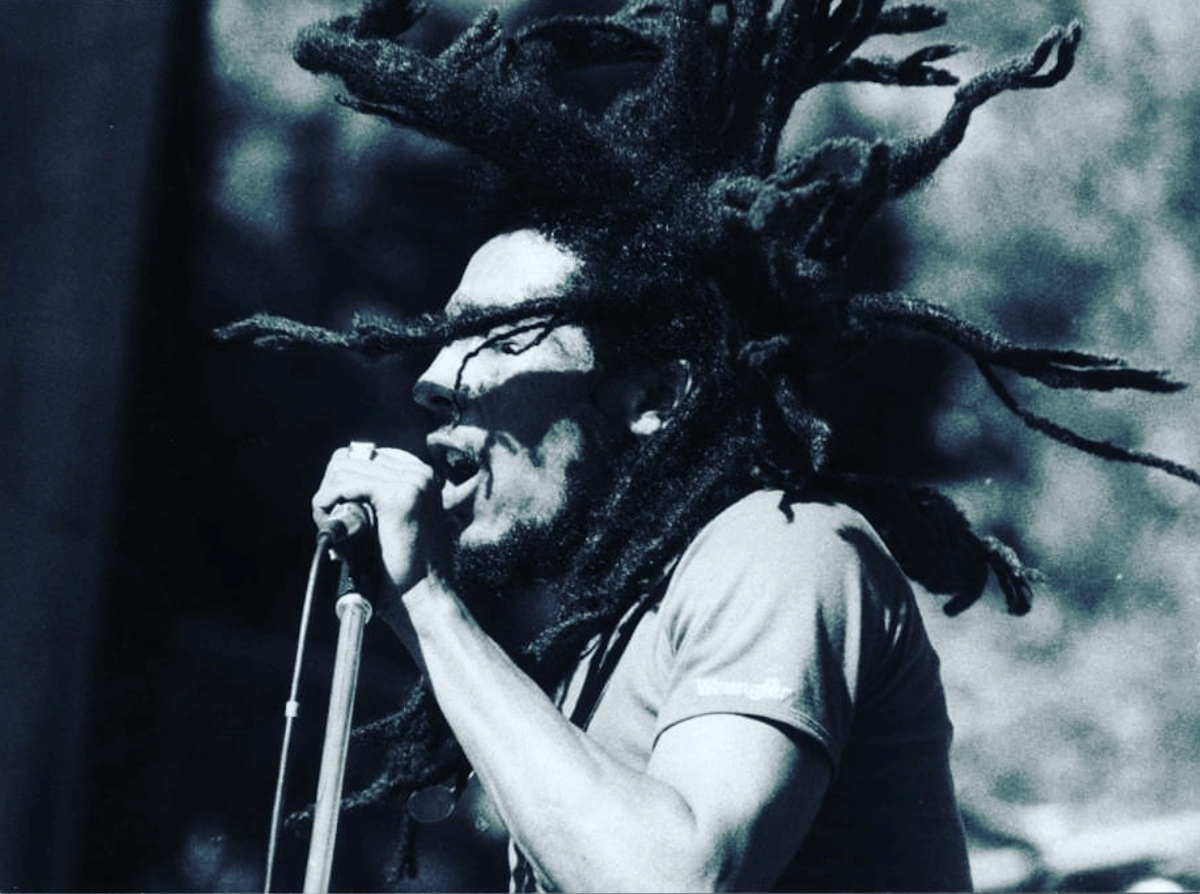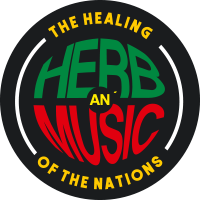17 Sep Cannabis & Music | Cosmically Intertwined Part 2

“The goal here is to establish the continuum between burning herb and bombastic bass, how people of color gravitated to these revolutionary musical art forms and brought the weed with them.”
B. GETZ
Cannabis & Music: Cosmically Intertwined pt.2
words: B.Getz – Upful LIFE
For September’s feature, Herb An’ Music is picking up where we left off last month, tracing the roots and connection between cannabis & music cultures, reflecting at the development over the past century. In the debut, we explored marijuana’s early jazz heritage in the speakeasies of New Orleans, it’s xenophobic demonization, and later the Beatniks, British Invasion, Bob Dylan and the Woodstock generation. For part two, we look into a pair of culture-defining musical evolutions: reggae and hip-hop. The goal here is to establish the continuum between burning herb and bombastic bass, how people of color gravitated to these revolutionary musical art forms and brought the weed with them. Within the contexts of reggae & hip-hop, this symbiosis is exemplified by the (primarily) artists-of-color expressing their ever-living struggle in song, often revealed in a cloud of ganja smoke.
Reggae is a spiritual music and culture that first manifested in Jamaica, beginning in the mid 1960s with ska, and later evolving to a number of styles and subgenres. Long associated with the ganja plant, reggae is sonically characterized by deep, throbbing lead bass lines, complex percussion riddims, skanking guitars, and drums on the down-beat.
The connection between reggae and ganja is found embedded within Rastafari, a cultural/religious movement born in Jamaica thirty years before reggae came to life. Rastafari promotes a natural – or ital – lifestyle, with ceremonial rituals of cannabis smoking intended to develop a more profound relationship with“Jah” (God.) Many of reggae’s most celebrated early artists were committed Rastafari, including icons like Bob Marley, Peter Tosh, Bunny Wailer, Burning Spear, among others in their respective bands, studios, and Kingston yards. As such, reggae music and cannabis have been intrinsically-linked since the dawn of the one-drop.
Reggae music has innumerable songs in tribute to ganja, it’s almost a prerequisite for roots & culture artists to sing a song in homage to the herb. A few of the more iconic tracks include Peter Tosh’s “Legalize It” (1976), Bob Marley & the Wailers “Easy Skanking” (1978), Lee “Scratch” Perry “Free Up the Weed” (1978), Eek-A-Mouse “Ganja Smugglin’ (1981), Musical Youth “Pass the Dutchie” (1982), Pato Banton “Don’t Sniff Coke (Only Smoke Sensimilla) (1987), Buju Banton “Gimme the Weed” (1994), Sizzla Kalonji “Smoke the Herb” (2003), Alborosie “Herbalist” (2008), among literally thousands of others.
The 1980’s revealed changes to the reggae scene, related to the political violence in Jamaica, the introduction of cocaine to the culture, and the emergence of dancehall. Dancehall is a louder, faster, and more mechanical style of island music, born out of urban reggae culture looking for a harder edge sound to dance to. The “DJ” in dancehall music was the singer, toasting the audience atop a riddim, in a performance mode akin to the hip-hop emcee, or rapper, native to a new development taking place in the U.S.
A musical art form, culture and movement born out of reggae’s soundclash tradition, hip-hop emerged from the Bronx, New York City in the late-1970s, thanks to legendary DJ Kool Herc, a native of Jamaica himself. As a result of the socio-cultural environment, and a multi-generational connection to Black musicians, cannabis has been forever ingrained in hip-hop culture since its inception. Yet in the early-to-mid 1980’s, within rap music it was still considered taboo to embrace marijuana, even if the nightclubs, park jams, and breakdance sessions at the schoolyard always smelled of sess. But if the early days of hip-hop were subversively influenced by 80’s cocaine culture, that swiftly changed with the next decade. Cannabis and hip-hop began a holy matrimony that has thrived in the ensuing thirty years.
Los Angeles’s funky bi-lingual trio Cypress Hill first laid the foundation in 1991, with their seminal self-titled debut LP and it’s unabashed, passionate embrace of smoking weed. Followed up the next year by Dr. Dre’s seismic SoCal classic The Chronic, another LA banger that set the world ablaze. With the emergence of Dre’s protege Snoop Doggy Dogg, mainstream marijuana finally had itself a marketable mascot. These three hip-hop artists paved the way for the likes of Method Man, Redman, Wiz Khalifa and more, as rap music and it’s unavoidable cultural zeitgeist had a monumental influence on cannabis normalisation in the United States as we entered a new millennium.
Akin to reggae music, hip-hop’s gigantic catalog is littered with odiferous odes to marijuana. A few of the seminal classics include Cypress Hill“Stoned is the Way of the Walk” (1991) and “Hits from the Bong” (1993), Redman “How to Roll A Blunt” (1992) The Pharcyde “Pack the Pipe” (1992), OutKast “Crumblin’ Erb” (1994), The Luniz “I Got 5 On It” (1995), Method Man & Redman “How High” (1995), Jay-Z “Feelin It” (1996), Dr. Dre & Snoop Doggy Dogg “The Next Episode” (1999), and just for the hell of it, the entire Total Devastation album from 1993.
As cannabis has slowly and arduously worked its way from the feared forbidden fruit of reefer madness, to corporate conglomerates producing a fiscally-rewarding, heavily-taxed, plastic-package product, the Schedule I laws still remain draconian at the federal level, and most states still have yet to legalize. Meanwhile, people of color are continually marginalized and penalized by archaic legislature designed to disproportionately work against them.
In spite of hip-hop’s unabashed embracing and emboldening the marijuana movement, there is still much work to do, and many people to free. Yet if you open up the internet, or step into any marijuana dispensary that looks like an Apple Store, you’ll notice hip-hop’s domineering influence everywhere you look.
——
Moving forward, Herb An’ Music looks to unpack, examine, and reflect on the various musicians, cultural developments, personalities, movements, and ideas that cosmically connected cannabis and music, past, present, and future. We’re stoked that you’re along for the ride!
